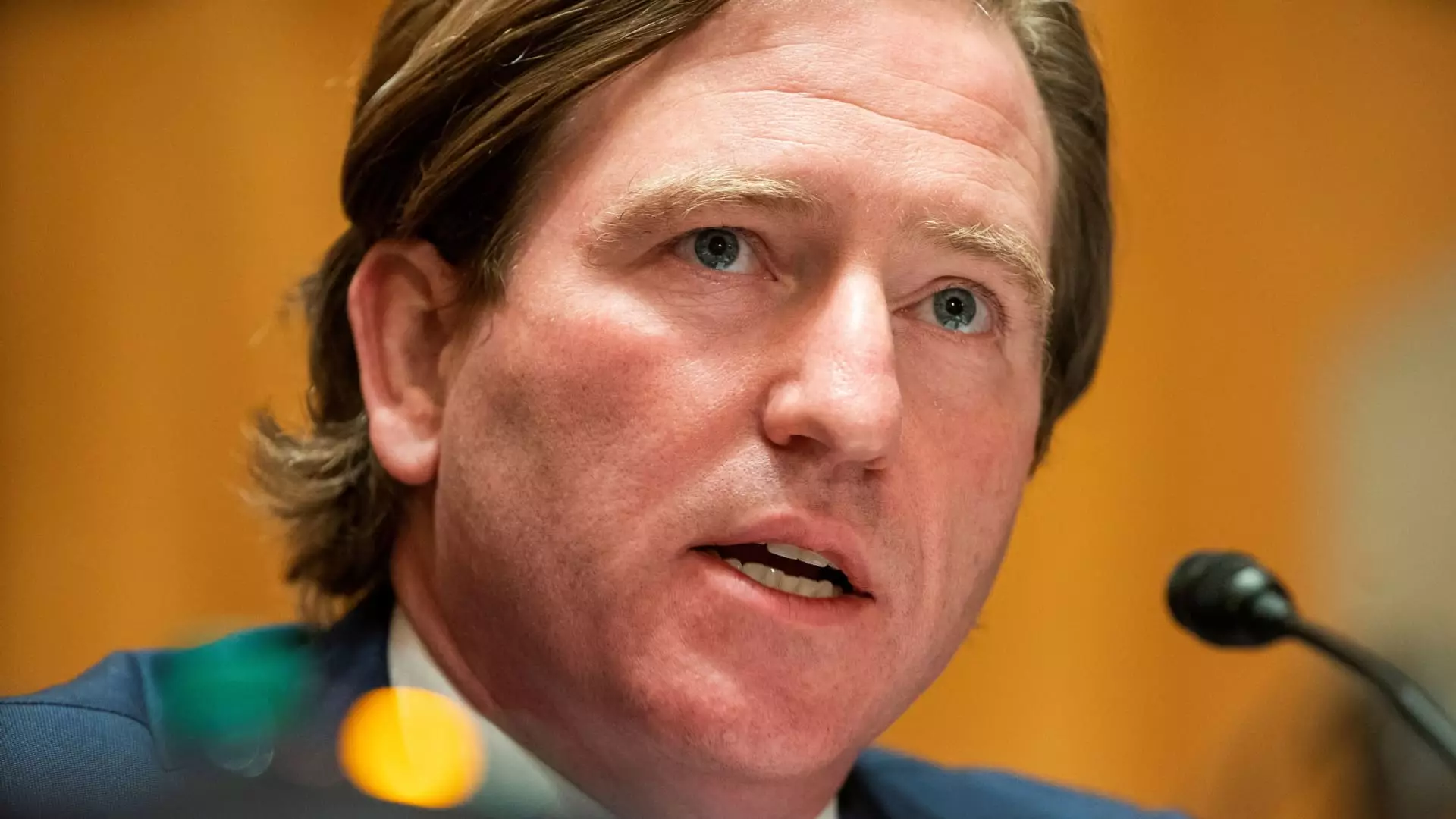In a politically charged climate where the lines between public service and private enterprise have become blurred, the recent actions of former President Donald Trump signal a troubling trend. The executive order aimed at Chris Krebs and his association with SentinelOne not only raises questions about freedom of speech and independent corporate governance but also illustrates how the political apparatus can wield its power to intimidate. This isn’t merely a personal vendetta; it embodies a broader challenge to the integrity of our democratic institutions and the autonomy of the private sector.
The Weaponization of Political Power
Trump’s executive order was not simply a reprimand but a chilling indication of how political machinations can disrupt individual careers and corporate strategies. By singling out Krebs, a former Chief of the Cybersecurity and Infrastructure Security Agency (CISA), Trump made it clear that dissent against his narrative on the 2020 election would not be tolerated. Krebs had publicly asserted the integrity of the election, calling it “the most secure in American history,” which immediately put him in Trump’s crosshairs.
This antagonistic stance demonstrates a concerning willingness to use executive power to govern personal grievances. In doing so, Trump doesn’t just attack an individual; he sends a message to all who engage with Krebs or dissent against his viewpoint. When a former president wields the power of an executive order against someone for holding beliefs contrary to his own, it raises alarms about the future of free expression not only in politics but also in the corporate sphere.
The Fallout for Corporate Independence
The consequences of Trump’s actions can be profound. Krebs’s swift resignation from SentinelOne reflects an urgent need for corporate leaders to reconsider their associations in this fraught environment. The fear of losing government contracts or facing retaliatory measures looms large, prompting organizations to self-censor or distance themselves from ideologies at odds with the prevailing government narrative.
When companies feel pressured to reconsider their relationships based on the whims of political figures, it cripples the necessary dialogue between the public and private sectors. A healthy democracy depends on candid discussions, even if they are sometimes uncomfortable. Instead, we’re witnessing the establishment of an environment thinly veiled by the threats of retribution, which hinders innovation and the free market.
A Test for Corporate Governance
SentinelOne’s situation provides an illuminating case study on how corporations can navigate political pressure while maintaining their integrity. The firm’s financial health heavily relies on government contracts, and their grim recognition of this dependency places them squarely in the line of fire. It’s a delicate balancing act that tests their capacities for governance in uncertain political climates.
The situation brings to light the essential question: Should corporations remain neutral and insulated from the political fray, or is it their responsibility to engage with critical societal issues? Krebs’ resignation serves as a reminder that if executives are forced to step down due to the powers that be, then corporate governance itself is compromised. The implications reverberate far beyond personal fallout; they affect all stakeholders involved and signal to the community whether a corporation is capable of leading with integrity during turbulent times.
The Unsettling Precedent for Public Service Leaders
Krebs’s journey from leading a vital cybersecurity agency to resigning under duress exemplifies the precarious position of public servants who dare to challenge the official narrative. His assertion that protecting democratic values and freedom of speech requires complete focus emphasizes the need for public figures to be brave enough to advocate for truth. It’s a sentiment reflecting the urgency of our political climate, where facts are obscured by relentless rhetoric.
This situation sets a dangerous precedent for other public servants. The fear of retaliation could inhibit future leaders from taking a stand, thereby eroding the democratic principles we value. How many more will be dissuaded from pursuing honest discourse, risking their careers in the face of unjust political enmity? The implications for future governance and public policy are staggering.
An Environment of Surveillance and Censorship
The ramifications of this targeting extend beyond a single resignation; they suggest a broader trend where executives and public figures are subjected to an environment akin to surveillance and censorship. By applying pressure through executive channels, Trump is attempting to establish a tactic for silencing dissent, creating a chilling effect on those who challenge his narrative publicly or privately.
The chilling nature of this power-play threatens the very fabric of a pluralistic society. When individuals like Krebs are targeted not just for their actions but for their affiliations, the message sent is clear: toe the line or face consequences. Such maneuvers disrupt the essence of free speech and diminish the critical checks and balances that governmental oversight entails.
In the long run, this episode reflects a dark era where the independence of both individuals and corporations lies perilously in the hands of those who wield executive power, creating an uneasy tension that challenges the very core of democratic governance and corporate legitimacy.

